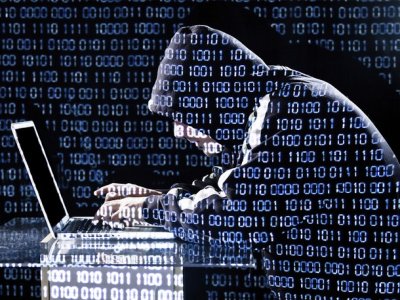
THE NEW WILD WEST
A strange alliance of capitalists and anarchists is resisting change to the place we are most at risk
The biggest cyber attack yet was launched in October 2016, temporarily overwhelming Twitter, PayPal and the New York Times, among other platforms. The so-called Internet of Things, whereby our lives become dependent on cheap, wired devices that can turn on things like kettles, heating systems and lights, is putting us at great risk. These are often highly insecure and may be hacked and joined to a huge army of devices to launch a distributed denial of service attack on parts of the internet.
Confused? Me too. I just pretend I know what this means.
The tech thinker John Naughton has said of the internet:
We’ve been remarkably incurious about its meaning, significance or cultural implications. Most people have no idea how the network works, nor any conception of its architecture; and few can explain why it has been – and continues to be – so uniquely disruptive in social, economic, and cultural contexts. In other words, our society has become dependent on a utility that it doesn’t really understand.
Put simply, we are simply not keeping pace with the technology and its impacts on us.
Online safety remains the number one concern and the protection of children and young people should be paramount. Strangely, in a culture which has become very focussed on safeguarding, the protection of children online is minimal. Most parents do not know or understand what is at stake. They are far more concerned about their children playing outdoors unsupervised than they are allowing them access to the internet. If a child is in the house, the assumption is they are safe; but they may not be.
It is not just tech-illiteracy that leads adults to make this mistake; it is also a shared failure of imagination. Until we see cyberspace as a place in itself, we will continue to under-regulate. No responsible parent would allow their child the unfettered freedom to play in a park known for crime, drug-dealing and predatory adults, but without proper online supervision, this is the risk we expose them to. This is the view of the world’s best cyberpsychologists, like Dr Mary Aiken.
The duty of protection lies not just with parents, but with wider society. If it takes a village to raise a child, it takes a village to protect one too. Policy needs to be in place to safeguard the internet. This is proving an uphill task, thanks to a combination of vested interests. On one side is a libertarian community which believes the internet should be entirely free of regulation – in their parlance, government interference. This community was an early adopter of the internet and is highly tech-savvy. Hackers are predominantly found in it. On the other side are the Silicon Valley entrepreneurs whose profit margins are at risk from greater regulation.
A strange alliance of capitalists and anarchists has thus emerged. These are the people best equipped to defend themselves online but they are resisting the changes necessary to protect the most vulnerable people who log on.
The concept of freedom has been emptied of meaning through over-use. There is little freedom when there are no rules in place to protect those who cannot help themselves. Liberty is a better idea, though it feels as antiquated as the Founding Fathers now. It describes a world where freedom is obtained because we regulate against our worst instincts as human being. If this simple premise had been embraced, the banking crash may not have happened, but for years we have been indoctrinated with the belief that regulation is somehow immoral.
The rules we find in the early books of the Bible, known as the Law of Moses, look odd to us, from the vantage point of our era. It is hard to know what lay behind some of its thinking. But it was a code of deep dignity and respect, enabling people to live in community. It describes something of the character of God and no more so in the provisions which sought to protect the neediest and most vulnerable. The code demonstrates realism over the human condition.
Some people are tempted to exploit others if they can see a way of gaining an advantage over them. Good laws, rules in the image of God, offer protection and afford a special value to the weakest.
This is the ethic we are losing sight of online. The internet has been described as the Wild West. Some would like it to stay that way. If we are serious about mastering runaway technology, there needs to be a new order to it. The creator of the internet, Tim Berners-Lee has called for a digital Magna Carta, for starters. He knows better than most what is at stake.
POPULAR ARTICLES

Obama's Covert Wars
The use of drones is going to change warfare out of all recognition in the next decades.

Through A Glass Starkly
Images of traumatic incidents caught on mobile phone can be put to remarkable effect.

What Are British Values?
Is there a British identity and if so, what has shaped the values and institutions that form it?


